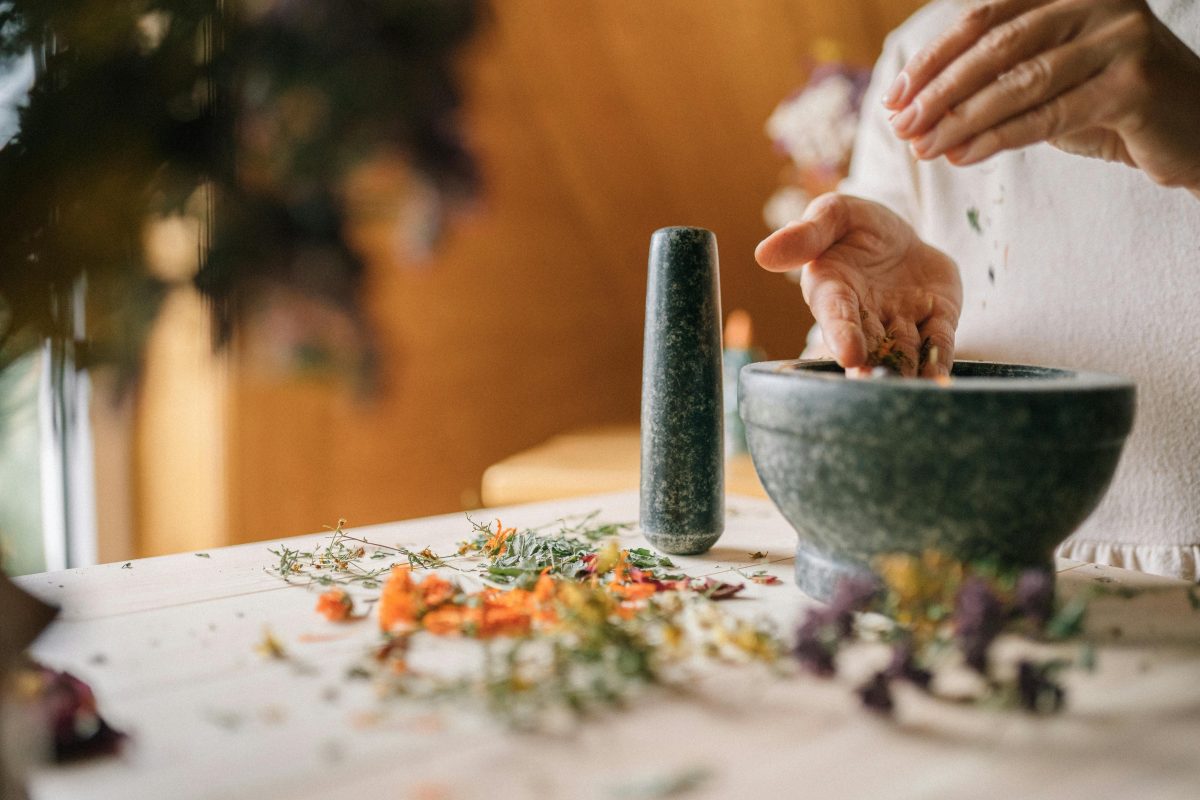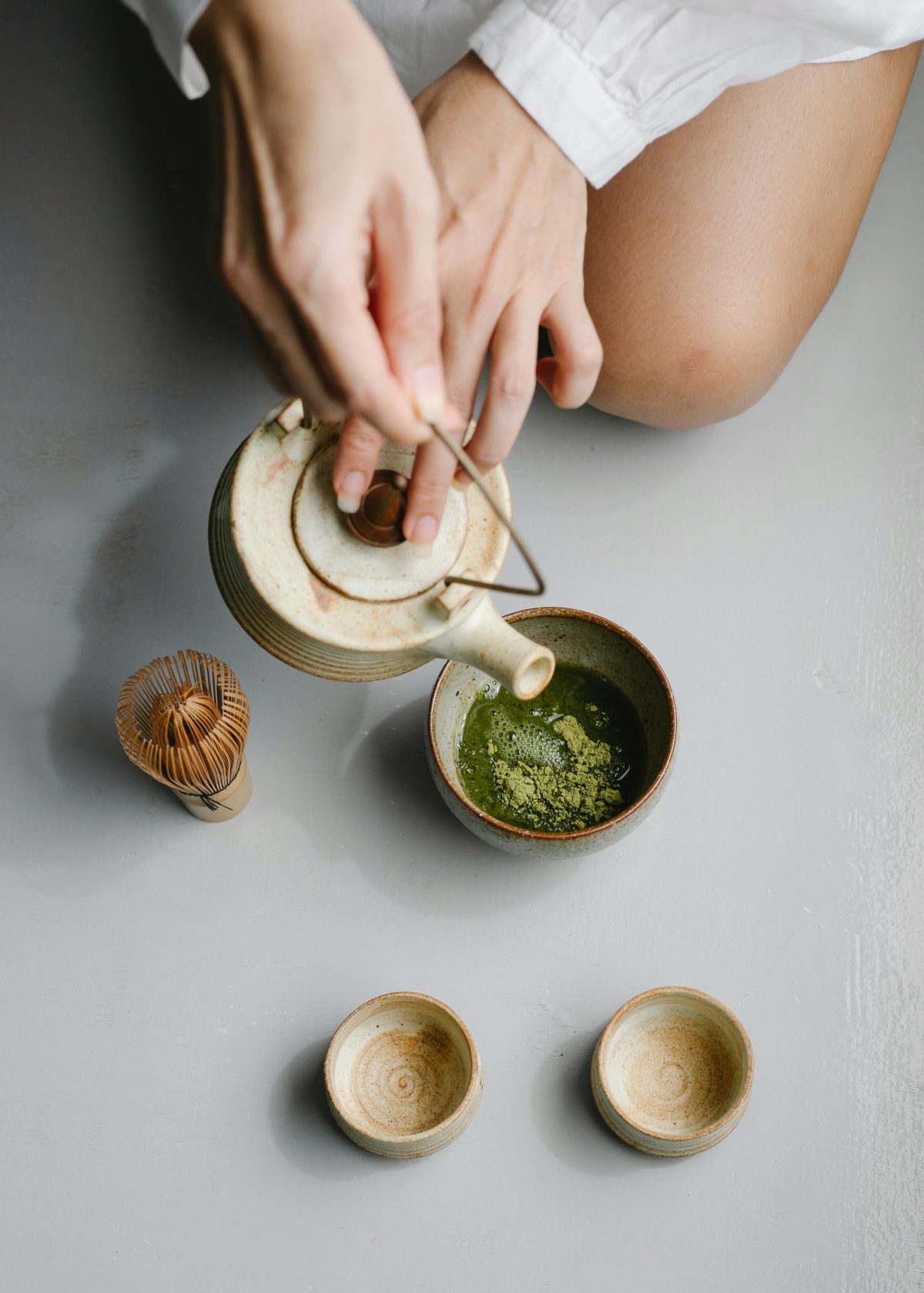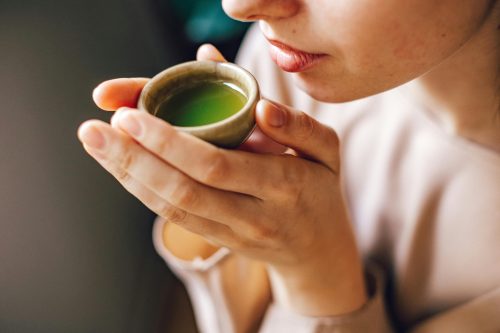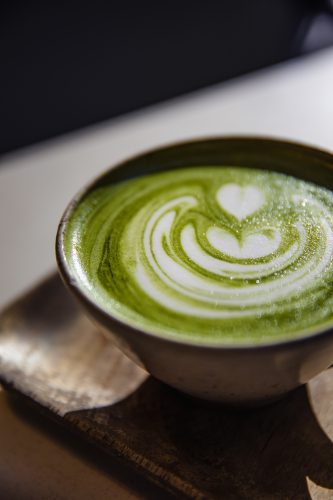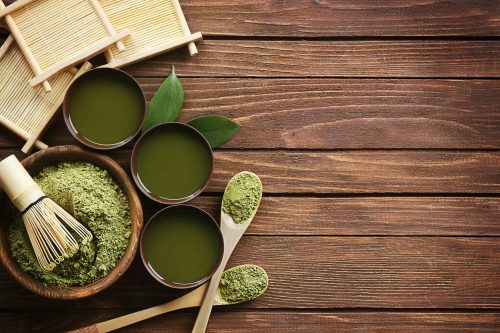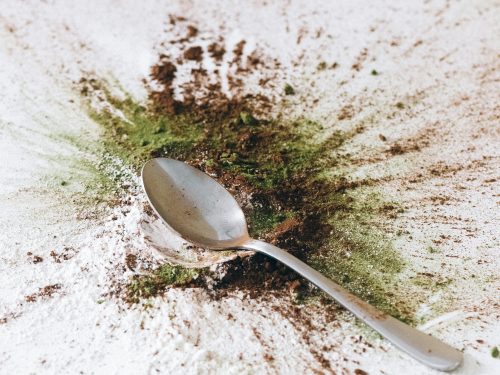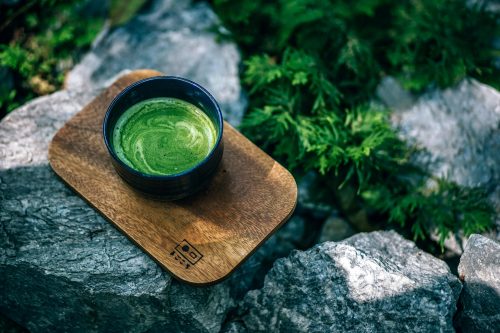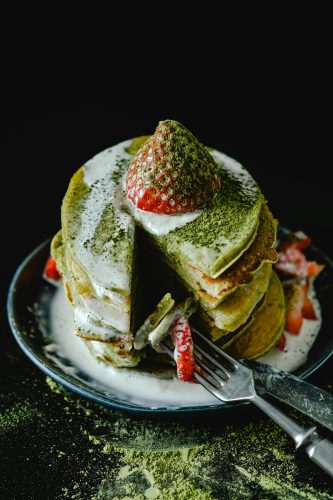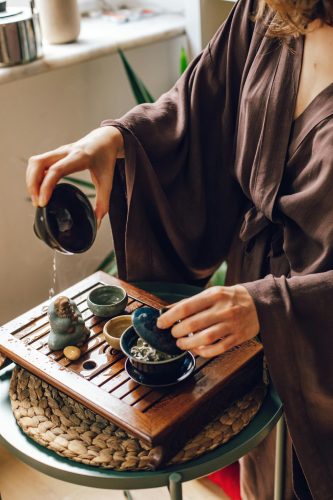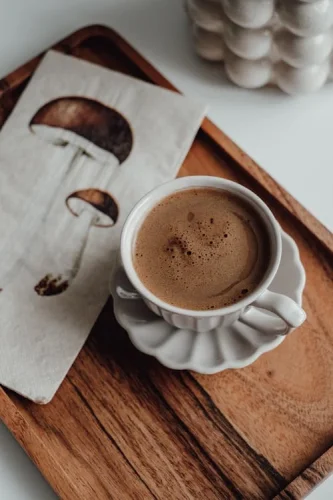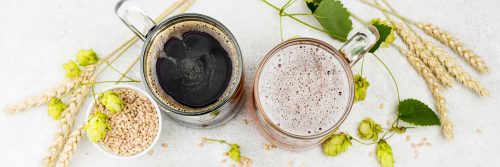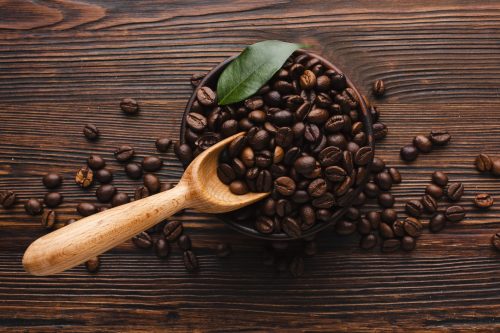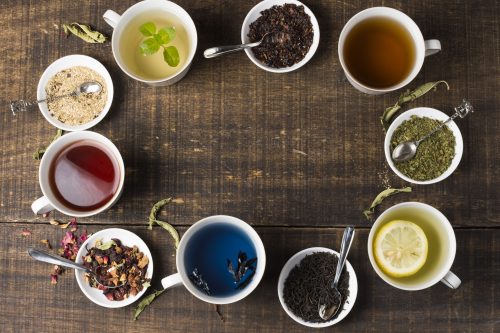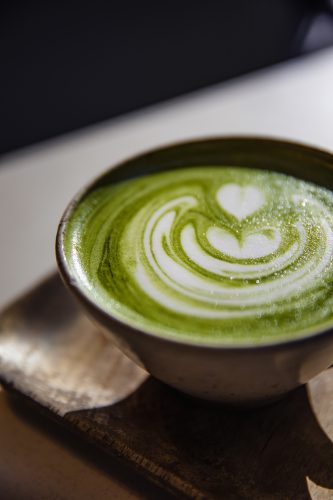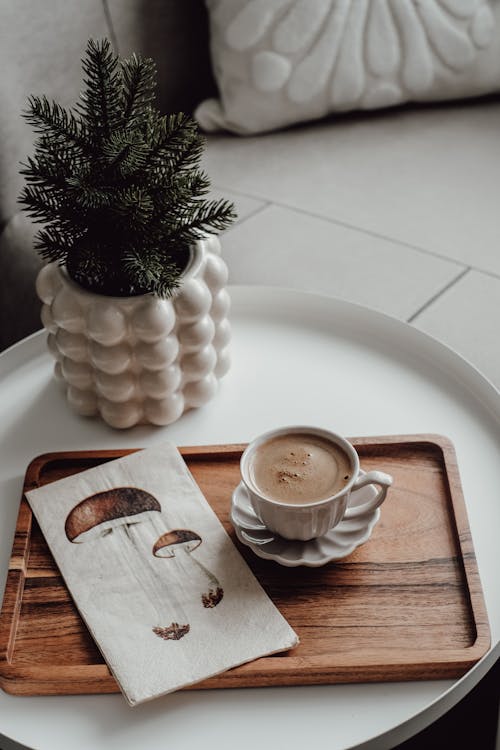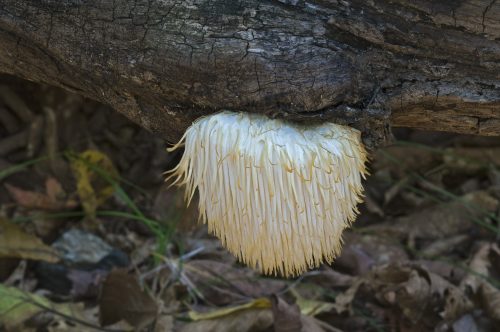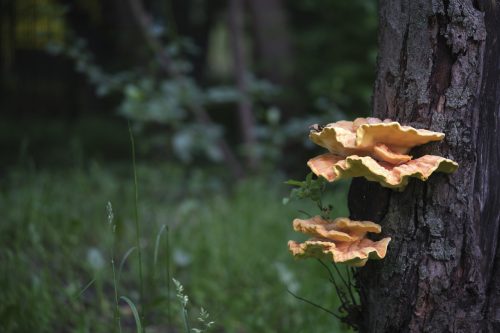More and more people are noticing the impact of modern life on our health and wellbeing. Our questions on how we can reconnect with our roots or return to a calm state through nature are mounting. And grounding herbs can be an answer to some of those questions.
It is no surprise that we are chasing ways to slow down and ground ourselves either in the moment, to ourselves, or to Mother Nature.
No surprise at all, when we find ourselves with scattered minds and running on autopilot to just keep up with the fast pace of life.
Even though we might sometimes feel robbed of the simplicities through growing consumerism, working harder for longer, and running to a finish line we fear we might never cross…
There are simple and short ways we can slow down, even for just a moment, and ground ourselves. In other words, reconnecting to ourselves and/or the world right now to achieve a calmer state of mind.
From processed foods to scents full of unnatural chemicals filling our homes… the impact of being so far removed from nature is emerging in recent research.
The list continues: plastic bed sheets, teflon pans, laundry detergent, shampoo, creams, body wash, toothpaste, plastic clothing… but I don’t need to go on.
Another aspect of fast-paced modern life is the physical barriers between us and nature (concrete, shoes, homes), further removing us from having a physical connection to the earth.
I don’t know about anyone else, but I often find myself avoiding certain online platforms.
Partly because, fear-inspiring posts with said research tend to get a lot of traction. It can feel like we can’t have much of anything without it being bad for us.
It is draining and at times, it can feel like all-consuming negativity and helplessness.
But I mention this because there are steps (even baby steps) we can take, not just for our health or a return to nature but also a calmer state of mind.
With their many uses, grounding herbs are one thing we can integrate into our lifestyles to support this.
What is a Grounding Herb?
We were born of this earth and its fruitful produce. As humans, we have used grounding herbs for thousands of years for remedies, ceremonies, rituals, medicine, food and more.
Central to cultures and traditions, knowledge around the foraging of herbs has been passed down through generations. Nowadays, herbs are used as complementary remedies alongside modern medicine.
It makes sense, then, that grounding herbs can help to support our connection to the earth, our minds, our bodies or just to life itself.
Grounding herbs are essentially plant parts – leaves or flowers or seeds. They can reconnect us to the present moment,the earth, and a more balanced state of being.
Many people might feel skeptical about their benefits. However, just like everything we come into contact with or consume, they can have a real impact on our physiological processes. This is starting to reflect in emerging research, which I’ll dive into for different grounding herbs below.
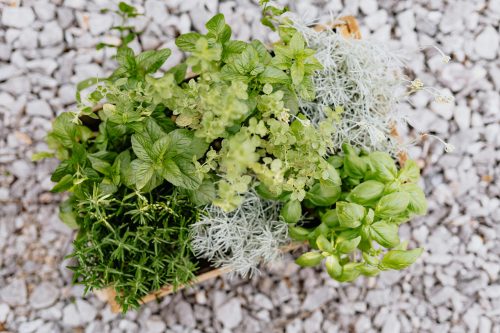
The Best Grounding Herbs
Whilst I worked at Holland & Barrett (a health and wellbeing store based in the U.K) I had the pleasure of completing a qualification all about herbal remedies.
I wouldn’t call myself a herbalist, but the herbs I recommend below those I often suggested to people looking to ground themselves, calm nerves and support their mood.
It is important to note this is not a substitute for professional medical advice. Please consult a healthcare professional if you are not feeling emotionally well or are on medication, which might interact with certain herbal properties. If you are pregnant or breastfeeding, do not take supplements without consulting with a professional as many of these herbs have not been studied in pregnant women.
This post contains some affiliate links, from which I may earn a small commission at no extra cost to you. I am not paid to promote specific products, and only recommend products I genuinely use and love.
Camomile
The use of this grounding herb for relaxation and sleep dates back to ancient times.
Not dissimilar in looks to a daisy, its delicate flowers are most often used in herbal teas.
However, some people do not like the slight floral taste of camomile and might opt for supplements.
If it tastes too much like flower petals for you, or camomile tea is not having an effect (since the active dose is lower in tea)…
I would opt for high-quality, strong supplements such as the ones in this link which you can get from phone to doorstep.
As always, if you’re on medication please consult with a medical professional, especially if on blood-thinning medication with this one.
Recent reviews of the research suggest promising evidence for chamomile’s effects on anxiety, though study quality and sample size can vary between trials.
The jury’s still out on the exact mechanisms that underpin chamomile’s calming effects, but researchers believe anti-inflammatory pathways and altering brain chemicals may play a part.
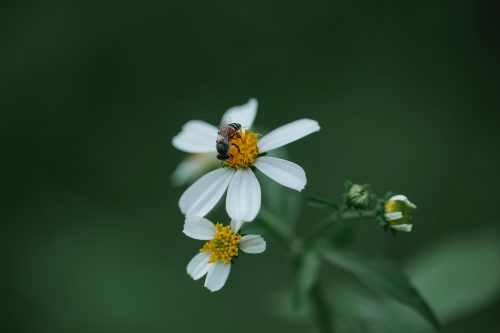
Passionflower
This flowering herb is most often associated with anxiety and sleep struggles. And no, it doesn’t taste like passionfruit…
Even without the sharp, fruity taste, research shows promising results for improving mood and sleep quality.
Its grounding effects are thought to stem from increasing GABA, a calming brain chemical (called a neurotransmitter) that helps slow nervous activity and support relaxation.
Yes, both camomile and passionflower can have positive effects on mood and sleep. However, they work through different mechanisms. Through my training in herbal remedies, I can say passionflower is more strongly endorsed for grounding and anxiety than for sleep.
It is normally taken in a supplement form, such as this A.Vogel supplement I often recommended to people asking for advice when I worked in the health and wellbeing store.
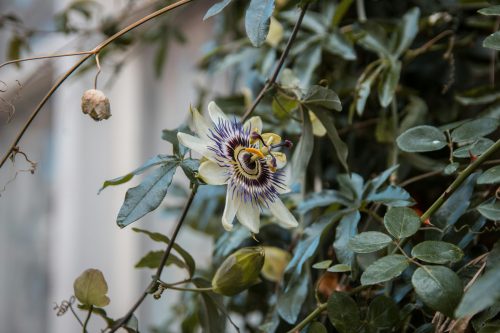
Lemon Balm
Similarly to passionflower, lemon balm’s calming effects are believed to be linked to how it interacts with neurotransmitters like GABA.
It has been traditionally used to support sleep, mood, and even digestion.
You can take lemon balm as a supplement. But, a common complaint I heard when working in the health and wellbeing store was the discomfort of swallowing capsules.
Luckily, this grounding herb is also popular as liquid extract drops to mix into your first cold drink of the day, such as the ones in this link.
Early studies suggest it may reduce symptoms of stress and anxiety, though more research is always welcome.
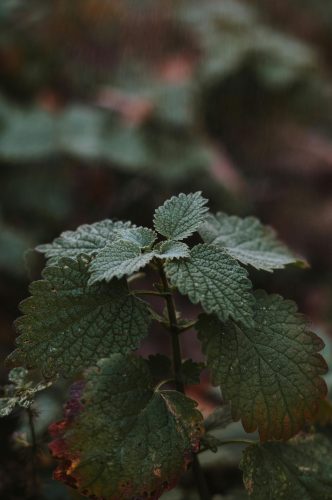
Valerian Root
Valerian root is a classic herb used for sleep, though it has also been explored for anxiety.
Research on its’ effectiveness is mixed depending on dosage, preparation, and study design, but some people tend to report less anxiety.
Like others on this list, valerian contains natural compounds that are thought to act on the brain’s calming systems (including GABA).
Kalms is the most signature brand of supplements with Valerian that has thousands of reputable reviews.
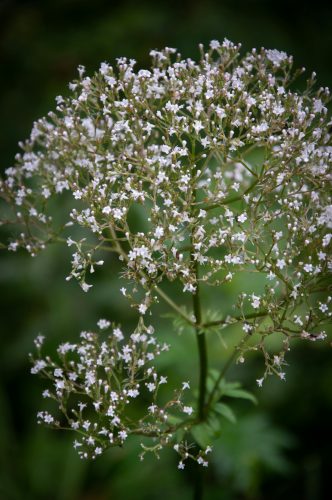
Lavender
Known for its signature purple hues and as a favourite landing pad for sleepy bees… lavender is probably one of the most iconic grounding herbs out there.
Larger reviews that pull together smaller-scale studies suggest lavender may help reduce anxiety and support sleep.
Whether in the form of tea, essential oil, or even as a gentle scent mist, it’s a versatile plant with many wellness uses.
If you want the maximum essence and benefits, you can get lavender oil capsules with the very reputable Kalms brand.
Please do not try to drink essential oil (often used for sleep mists or diffusers), because it is not the same thing and can really harm your tum.

Ashwagandha
This is an adaptogen which has gained popularity in recent years. Often taken as a supplement, it belongs a class of herbs thought to help the body adapt to stress.
Also integrated into many wellbeing products, you find it in mushroom coffee alternatives to reduce jitters and provide calm energy, which I explore further in this blog.
Studies suggest it may reduce cortisol (our stress hormone), and early trials also report improvements in sleep, energy, and anxiety levels. This grounding herb may not work overnight, but regular use might help the body and mind stay balanced over time.
Skullcap
Less well-known than others, skullcap has been used traditionally for nervous tension, restlessness, and even seizures.
Some small studies suggest potential calming effects, but like many herbs, the research is still developing. Anecdotally, it’s used by herbalists to help ‘quiet the mind,’ especially when stress feels like it’s buzzing in the background.
This one is worth trying if you want to try something new or want to reap its other potential benefits on inflammation, immunity, cognitive support and liver detox.
St. John’s Wort
This is more of a serious herb compared to others in list.
Important: This herb has many drug interactions, including with contraceptive pills, antidepressants, and other medications. Please speak with a medical professional before trying it.
St. John’s Wort is often taken as a supplement, such as this pick with thousands of positive reviews, and has been shown in some studies to be similarly effective to antidepressants for mild to moderate low mood.
That said, it’s not endorsed as a treatment by most medical bodies due to its interactions and variability in potency.
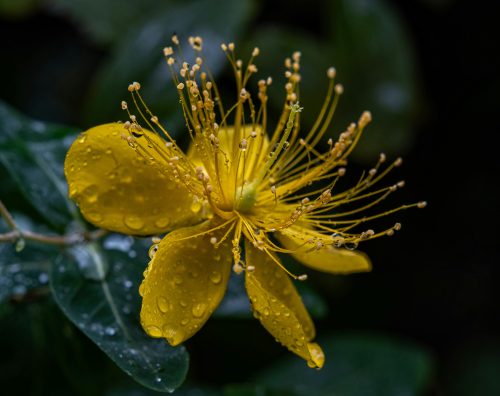
How to Ground Yourself with Grounding Herbs
Whenever I have been on my grandmother’s allotment, I revered in discovering different herbs growing in different corners as I wound my way through, picking as I went.
In one sense, grounding herbs can be about presence and connection. Slowing down. If you grow herbs or have some fresh at home, you might want to try this grounding herb practice.
It is particularly helpful for when you are feeling distracted, worn down by worries or disconnected from yourself, the world, or life in general. Grounding practices such as this one I came up with precisely get you out of your mind and into the world around you, supporting presence and focus.
You might feel silly doing it but at the core of it, you’re just being a human doing human things. Back in the day when we used to forage, I can’t imagine it was anything unusual to use our senses to identify herbs. So, this practice also brings us back to our roots in some ways.
1. Grounding in Sight
You can pick a fresh herb and start by noticing its shape, colour, and size. Carefully examine its’ texture, does it look smooth, bumpy, does it have little veins? What does it remind you of?
2. Grounding in Touch
Next, rub the herb between your fingers to see. See if the physical texture matches what you noticed about the texture through your sight. Is it soft, hard, smooth?
3. Grounding in Smell
Rubbing the herb between your fingers will also release aroma. You can lift the fresh herbs to your nose and inhale the scent a few times. Is it familiar? Does it remind you of anything positive? Is it sharp, pleasant, peppery, or subtle?
Perhaps you can notice the differences in scent between different herbs.
4. Grounding in Taste
You might have a slight nibble on the herb to notice its’ raw taste. We aren’t looking to judge, but just notice what comes through.
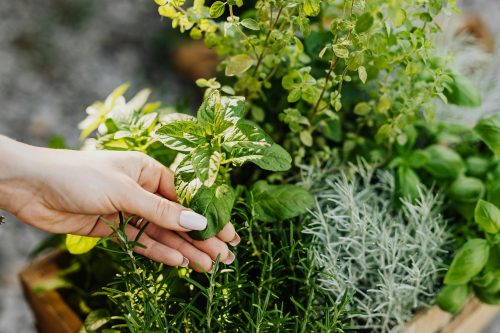
Why Ground Ourselves?
It is permitting ourselves for a moment to notice small and simple elements that we may otherwise overlook when using them.
Using herbs for this grounded mindfulness practice means we’re not just relying on direct use or consumption for presence and calm. Instead, we are drawing our senses to physically and mentally ground ourselves in the present moment.
If in doubt, consider that research supports the use of grounding strategies on emotion regulation and mood.
This short yet sweet routine has the potential to ground you by focusing your mind using your senses.
Stimulating your mind in this way activates different areas of your brain relating to your senses rather than the parts of our brain activating when we’re worried or stressed.
This presence and ‚slow moment’ you create has the potential to activate your parasympathetic nervous system (in plain English, your bodies’ soothing system).
No more thinking about the past or future. It’s impossible to be calm and anxious, or present and absent, at the same time.
And hopefully you can take that forward into the rest of your day if you find yourself stuck unhelpfully in the past or future.
In another sense, grounding herbs can be about how we use or consume them…
Watch this space for an upcoming blog all about different ways to use grounding herbs. We will dive into direct methods (e.g., consumption) and more creative, indirect ways to surround yourself in herbal bliss.
Let me know if you have any questions or thoughts about this rundown of grounding herbs in the comments below!
